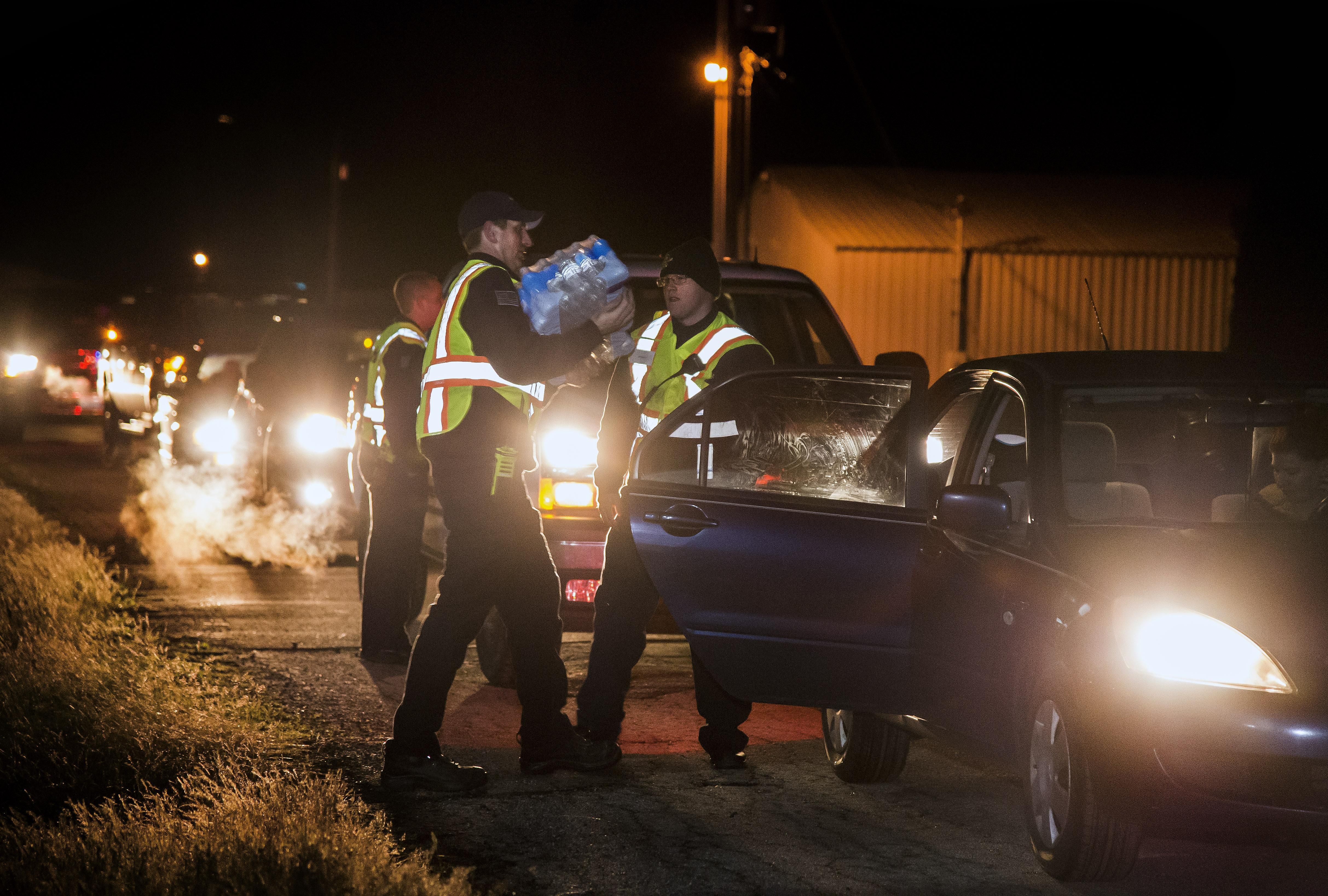33 Airway Heights area restaurants asked to keep city water out of food and beverages

Health officials have asked some Airway Heights restaurants not to use city well water to wash vegetables and cook food.
The Spokane Regional Health District contacted 33 retail food businesses west of Hayford Road, said Lisa Breen, the food program technical adviser. Those restaurants draw water from two city wells found to contain potentially dangerous chemicals used for decades by nearby Fairchild Air Force Base.
The health district will not enforce the recommendations.
“The onus is put on the operators to be doing what they should be doing,” Breen said.
Restaurants are able to wash dishes with the contaminated water, she said. The recommendations mirror guidance given by the city of Airway Heights on Wednesday.
“We’re not going to ask you to destroy food, but we are going to ask you to carry forward with only using potable water at this point,” Breen said.
Breen said the health district did not contact wholesale food and beverage production facilities because they do not license them.
Sala Thai restaurant owner Pat Smipamorn said he’s been cooking with bottled water. He uses between 50 and 65 gallons a day. He hopes the city of Airway Heights reimburses him for the cost, so he’s saving the receipts.
Barbara Davis, co-owner of Wolffy’s Hamburgers, said she didn’t wait for the health department to contact her. She started throwing away pre-made chili and soups in addition to tossing 500 pounds of ice. Like Smipamorn, she is washing all produce with bottled water and serving canned soda and bottled water.
The hardest part has been storing nearly 650 pounds of fresh ice she ordered from Spokane.
“These are big things of ice,” she said.
Overall, she said it’s been a “doable” adjustment.
She did hear that the Air Force might start providing business owners with bottled water, as it has done for individuals and families. She hopes that is the case.
On Thursday, the Washington Department of Corrections announced in a news release that it has enacted a voluntary recall of all food manufactured by the Airway Heights Corrections Center’s Correctional Industries food production facility.
Elizabeth Coleman, a spokeswoman for the Washington state Department of Health, said the nature of the contamination makes assessing the impact, and formulating an appropriate response, difficult.
“This is a question that at least our state hasn’t faced before,” she said.
The food safety issue is further complicated because the perfluorinated chemicals in question are not regulated by the federal government, meaning there isn’t a clear next step. The Environmental Protection Agency is considering whether or not to regulate the chemicals, Coleman said.
There is some discussion at the state level about whether or not Washington should create its own regulations ahead of the federal government, she said.
“All the actions that are taking place are being taken out of an abundance of caution,” Coleman said.
An added complication is that unlike other chemicals, the perfluorinated chemicals’ negative effects are cumulative, taking years to manifest. They won’t cause an “acute issue right now,” she said.
“It’s not like salmonella or E. coli where we know this is what’s going to happen to you in the next 12 hours,” Coleman said.
Numerous studies have linked the chemicals, which were used in fire-extinguishing foam from 1970 until last year, with an array of health defects, from high cholesterol and thyroid disease to pregnancy-induced hypertension.
